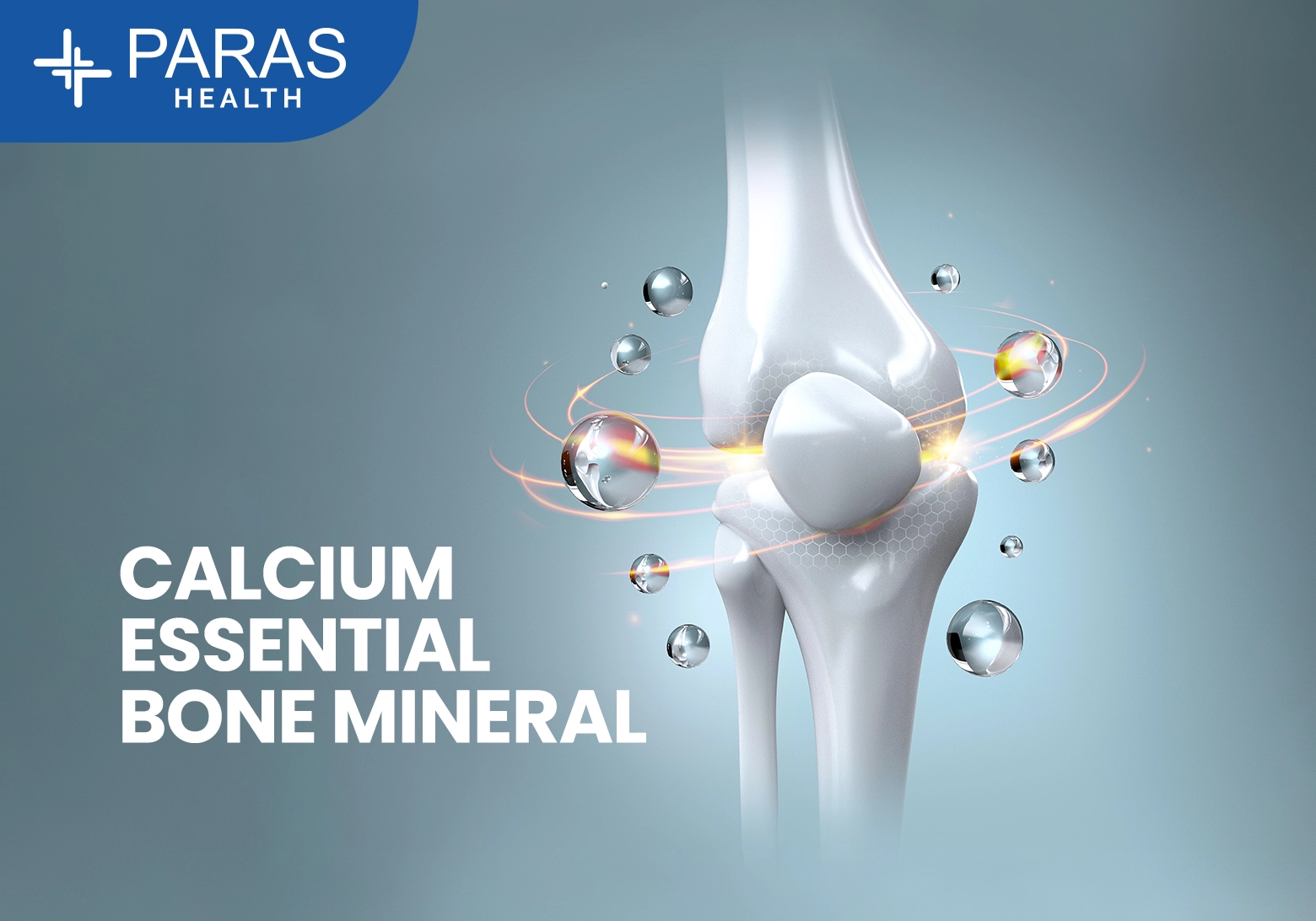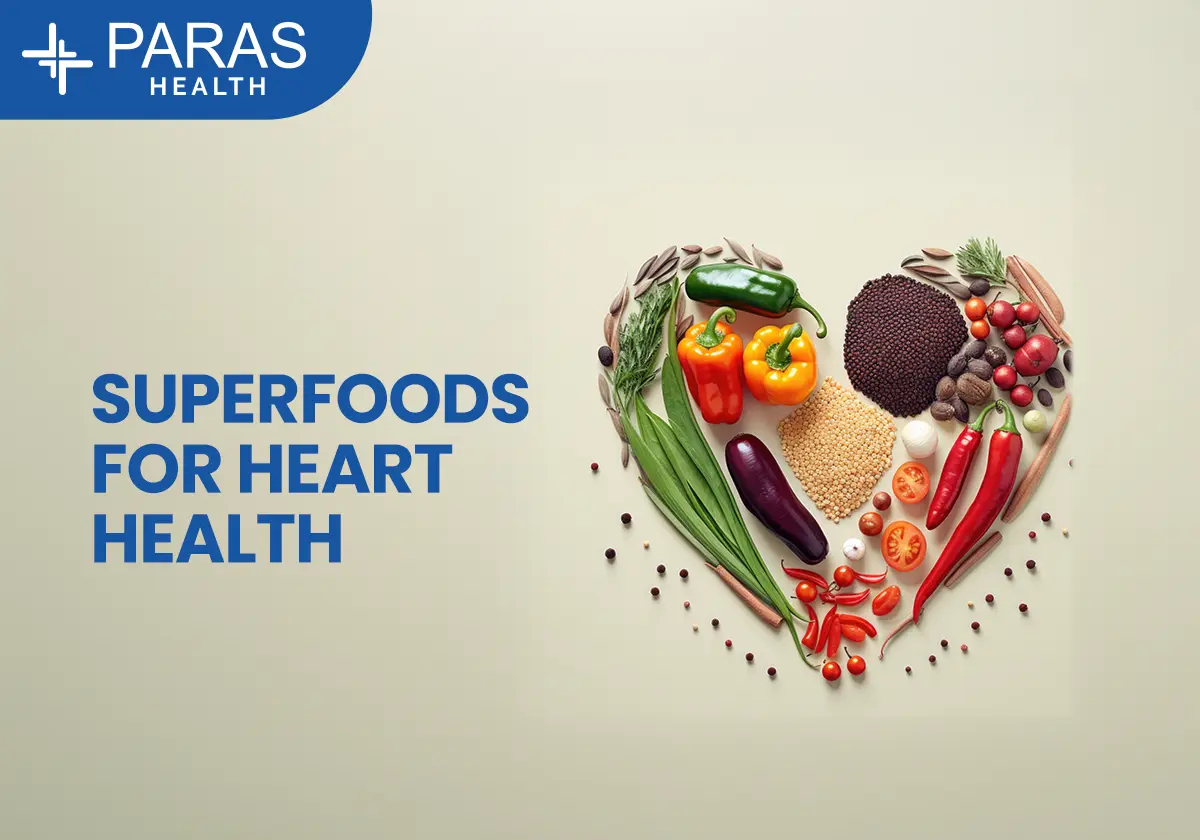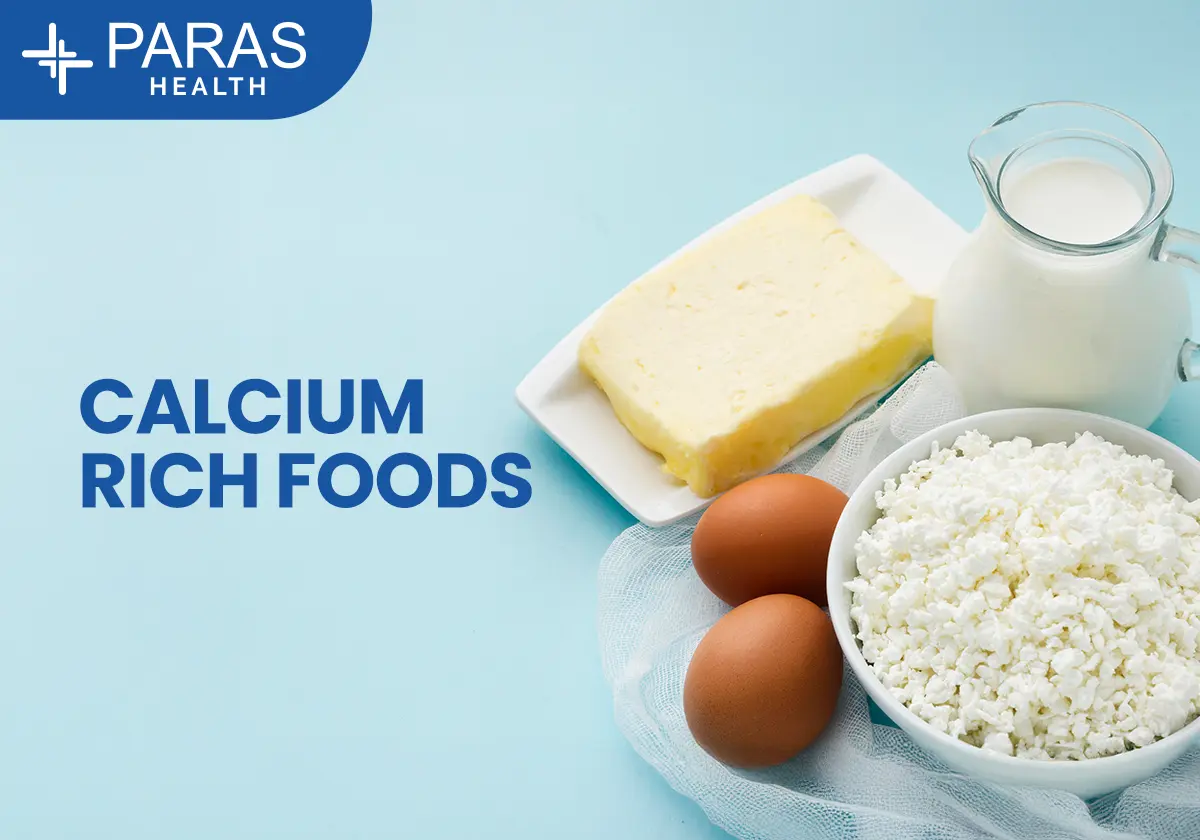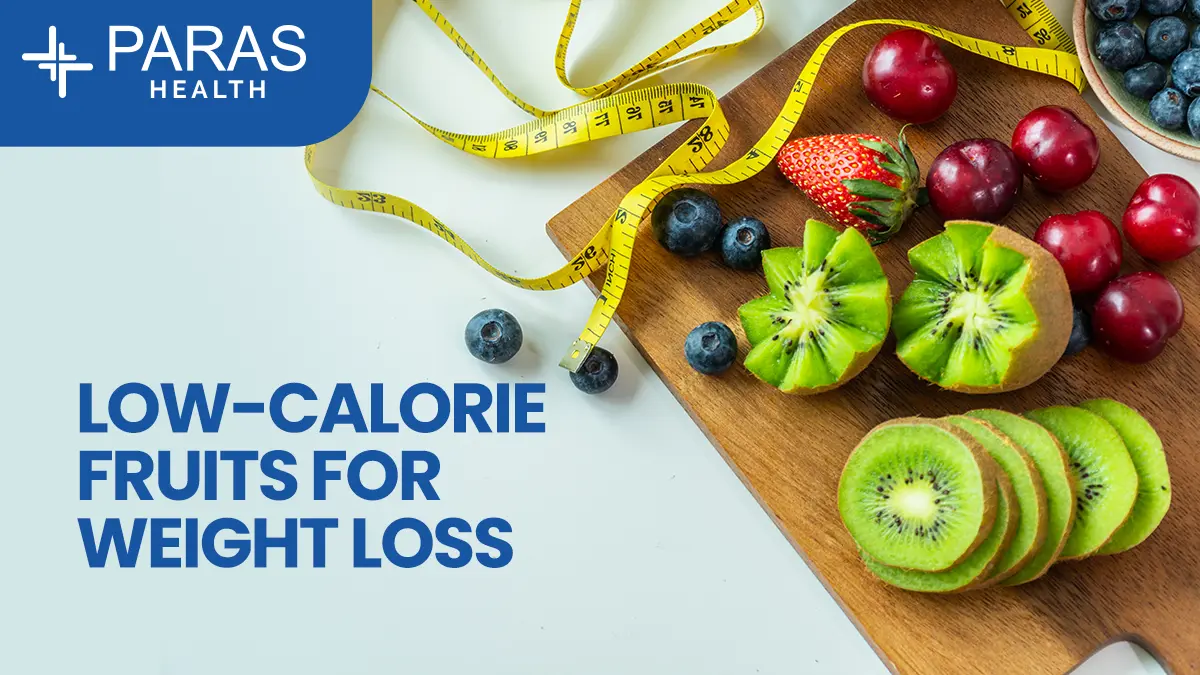Calcium – The Essential Bone Mineral: Benefits, Sources, Deficiency Signs & Daily Requirement
Nov 28, 2025
Calcium is one of the most important minerals in the human body. We often think of calcium only in terms of bones and teeth, but its role goes far beyond that. Calcium supports muscle movement, nerve communication, blood clotting, heart rhythm, hormone release, and metabolism. In short—your body needs calcium every single day to function properly.
Unfortunately, calcium deficiency is becoming increasingly common due to poor diet, lack of sunlight, low vitamin D levels, decreasing physical activity, and lifestyle changes. This blog will help you understand why calcium is essential, how much you need, the best food sources, signs of deficiency, and how to improve calcium absorption naturally.
Let’s explore.
What Is Calcium and Why Is It Essential?
Calcium is the most abundant mineral in the human body. About 99% of calcium is stored in bones and teeth, and the remaining 1% circulates in the blood to support vital bodily functions.
Calcium is essential for:
- Strong bones and teeth
- Muscle contraction
- Nerve transmission
- Heartbeat regulation
- Blood clotting
- Hormonal balance
- Metabolism and enzyme function
Your body cannot produce calcium on its own—you must get it from food or supplements.
Calcium and Bone Health
When we talk about strong bones, calcium is the first thing that comes to mind. But why?
Bone Strength and Density
Calcium helps build bone mass and maintain bone mineral density. During childhood and teenage years, calcium helps bones grow longer and stronger. In adults, it maintains bone strength.
Prevents Osteoporosis and Osteopenia
- Osteoporosis: Bones become weak and brittle
- Osteopenia: Early stage of bone loss
Calcium + Vitamin D play a major role in preventing both conditions.
Essential at Every Life Stage
- Children & Teenagers: Build strong bones
- Adults: Maintain bone mass
- Women after 40: Prevent rapid bone loss
- Elderly: Reduce fracture risk
Peak bone mass is achieved around age 30—after that, bone loss naturally starts. Adequate calcium intake slows this loss.
Calcium Functions Beyond Bones
Calcium’s role doesn’t end with bones.
Muscle Function
Every muscle movement—from walking to blinking—needs calcium. It helps muscles contract and relax.
Nerve Function
Calcium allows nerves to send and receive signals, enabling communication between the brain and body.
Heart Function
Calcium helps maintain a steady heartbeat and supports heart muscle contraction.
Hormones & Metabolism
It helps release hormones and enzymes that control digestion, metabolism, and energy production.
Daily Calcium Requirement (RDA)
Your daily calcium needs depend on age and life stage:
Children (4–13 years): 1000 mg/day
Teenagers (14–18 years): 1300 mg/day
Adults (19–50 years): 1000 mg/day
Women (50+ years): 1200 mg/day
Men (70+ years): 1200 mg/day
Pregnant & Lactating Women: 1000–1300 mg/day
Calcium Deficiency (Hypocalcemia): Signs, Risks & Causes
Calcium deficiency is more common than we think—and often goes unnoticed.
Common Symptoms:
- Weak or brittle bones
- Frequent muscle cramps
- Tingling sensation in hands & feet
- Fatigue & weakness
- Brittle nails
- Tooth decay
- Joint pain
- Back pain in women
- Irregular heartbeat (in severe cases)
High-Risk Groups:
- Women (especially after menopause)
- Pregnant women
- Elderly
- People with low vitamin D
- Vegans
- People with digestive disorders
Common Causes:
- Low calcium intake
- Vitamin D deficiency
- Poor absorption
- High salt/caffeine intake
- Hormonal imbalance
- Kidney issues
Ignoring deficiency can lead to osteoporosis, fractures, dental issues, and nerve problems.
Best Natural Sources of Calcium
Calcium-rich foods are easy to include in your daily diet.
Dairy Sources
These offer highly bioavailable calcium (well-absorbed by the body):
- Milk
- Curd
- Cheese
- Buttermilk
- Paneer
Plant-Based Calcium Sources
Perfect for vegans or lactose-intolerant individuals:
- Sesame seeds
- Chia seeds
- Almonds
- Broccoli
- Spinach
- Tofu
- Kale
- Figs
- Soy milk
Fortified Sources
Many foods today are fortified with calcium:
- Fortified cereals
- Fortified juices
- Fortified plant milk
- Fortified breakfast bars
Always check labels.
Calcium Supplements: Do You Need Them?
Supplements help people who cannot meet calcium needs through diet alone.
Types of Calcium Supplements
- Calcium Carbonate
- Higher elemental calcium
- Best taken with meals
- Calcium Citrate
- Easier to absorb
- Suitable for older adults & people with digestion issues
When Are Supplements Needed?
- Post-menopausal women
- Pregnant women
- Elderly with weak bones
- People with deficiency
- Vegans
- People with lactose intolerance
Calcium + Vitamin D: A Must
Vitamin D aids calcium absorption—most supplements include both.
How to Improve Calcium Absorption Naturally
Even if your calcium intake is sufficient, your body may not absorb it properly unless certain conditions are met.
Get Enough Vitamin D
Sunlight is the best source. Food sources include eggs, mushrooms, fish, and fortified items.
Include Magnesium
Magnesium works together with calcium for strong bones. Nuts, seeds, and leafy greens are rich in magnesium.
Avoid Calcium Blockers
Some foods inhibit calcium absorption when consumed in excess:
- Caffeine
- Excess salt
- Soft drinks
- Too much sugar
- High-oxalate foods (spinach, beet greens—consume moderately)
Drink Plenty of Water
Helps balance minerals and support metabolism.
Don’t Take High Doses at Once
Calcium is better absorbed in smaller doses (500 mg max at a time).
Calcium for Special Populations
Women
Women lose bone density faster than men—especially after menopause. Adequate calcium prevents fractures, back pain, and osteoporosis.
Children & Teenagers
These years are crucial for building strong bones that last a lifetime.
Senior Citizens
After age 50, bone loss accelerates. Calcium + Vitamin D + exercise are essential.
Pregnancy & Lactation
Calcium supports fetal bone development and prevents bone loss in mothers.
Conclusion
Calcium is the foundation of strong bones and a healthy body. From childhood to old age, your body needs calcium every day for proper muscle movement, nerve function, heart health, and overall energy.
The good news? You can meet your calcium needs through a balanced diet, sunlight, exercise, and supplements when required. By understanding calcium deficiency signs early and maintaining consistent intake, you can protect your bones and long-term health.
FAQs
Why is calcium important for bones?
Calcium strengthens bones and maintains bone density. Without enough calcium, bones become weak and prone to fractures.
How much calcium do I need every day?
Most adults need 1000–1200 mg daily, while teenagers and pregnant women need around 1300 mg.
Which foods are highest in calcium?
Milk, curd, cheese, sesame seeds, almonds, broccoli, fortified cereals, and tofu are excellent calcium sources.
How do I know if I have calcium deficiency?
Signs include muscle cramps, weak bones, fatigue, brittle nails, and frequent dental issues. A simple blood test confirms deficiency.
Which calcium supplement is best?
Calcium carbonate works well for most people, while calcium citrate is better for older adults or people with digestion issues.
Does calcium help with joint pain?
Calcium supports bone and cartilage health, which may reduce joint pain—especially when combined with vitamin D.
Can I take calcium every day?
Yes, but stick to the recommended dose. Excessive calcium can cause kidney stones or digestive issues.
What improves calcium absorption?
Vitamin D, magnesium, sunlight exposure, and a balanced diet all help improve calcium absorption.
Is calcium important for heart health?
Yes, calcium supports heart rhythm and muscle contraction. Deficiency can affect heart function.
Can lack of calcium cause fatigue?
Yes, low calcium affects muscles and nerves, leading to weakness, tiredness, and low energy levels.










